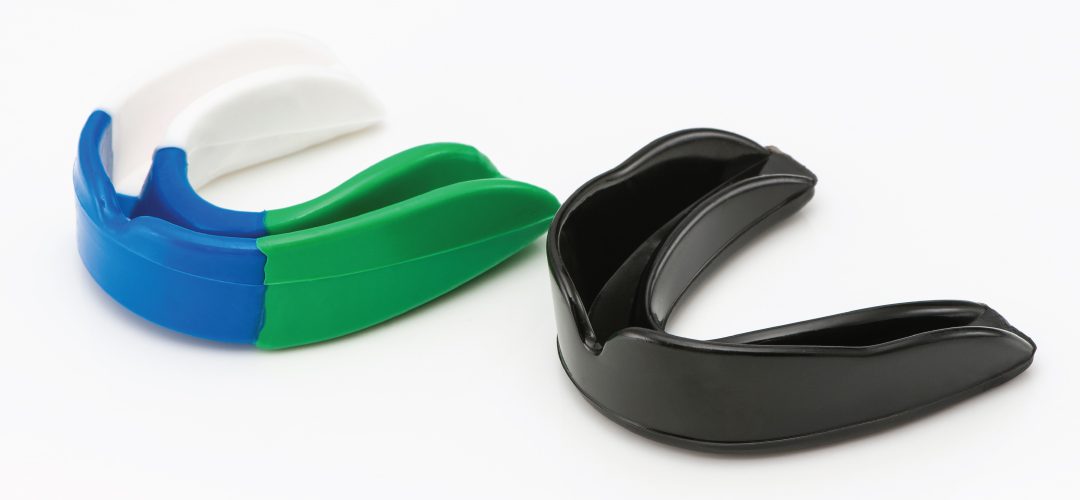
by Roseman Dental | Sep 13, 2021 | Dental 360, Dental Clinic Blog, Oral Health, Roseman Dental - NV, Roseman Dental - UT
A Guide for Proper Dental Treatment at Every Age
When your child was first born you probably started following a rigorous schedule of appointments with your pediatrician to keep him or her healthy. Many parents are not aware that children also need proper dental care and oral check-ups starting at an early age.
Tooth decay in toddlers, preschoolers, and school-age children is one of the leading preventable diseases in the U.S. It can lead to several health and lifestyle complications, including pain and soreness, improper speech development, inability to chew properly, missed school days, premature loss of baby teeth, infections, inflammation and gum disease. Here is a quick guide to help you understand your child’s oral care needs from birth through teenage years.
Baby Teeth
Just because kids lose baby teeth doesn’t mean they don’t need them—baby teeth are important placeholders for adult teeth and are at risk for tooth decay without proper care.
Birth to 12 months:
- Make oral health check-ups part of your baby’s well-child visits with your doctor.
- When the first teeth erupt from the gums, wipe them gently with a wet washcloth or lightly brush them with water and an extra soft bristle toothbrush. Do not use toothpaste.
12 to 24 months:
- Brush your child’s teeth at least twice a day using a baby toothbrush and water. Talk to the dentist about whether you should use toothpaste.
- Avoid sugary drinks like juice or milk between meals and fill bottles with water when putting children to sleep.
- Wean children of sucking habits on things like pacifiers or thumbs.
- Take your child for their first visit with a dentist before age 2.
- Talk to your dentist about how to help your child get enough fluoride, especially in Utah where it’s not added to the water supply.
Children’s Teeth
Baby teeth play a role in helping toddlers and preschoolers with chewing, swallowing, speech development, and creating space for adult teeth.
Ages 2-5:
- Help children brush their teeth for 2 minutes, 2 times a day. Use a soft-bristle toothbrush and a pea-size amount of fluoride toothpaste, making sure the child doesn’t swallow it.
- Begin flossing as soon as two teeth touch each other.
- Dentists recommend that you continue to help your child brush until the age of 4, or around the time they have the motor skills to neatly write their name.
- Go in for dental check-ups once or twice a year.
- Fill sippy cups with water and limit sugary drink intake (juice, milk, sports drinks, soda, lemonade, and tea).
- Feed your child healthy meals and snacks that are low in sugar.
Ages 6-10:
- Around age 6 children will start losing baby teeth as permanent teeth erupt.
- Schedule dentist appointments every six months for check-ups and cleanings.
- Feed children healthy food and snacks to help develop strong teeth and healthy gums.
- Talk to your dentist about getting sealants on permanent molars to protect against cavities.
- As children begin participating in sports and outdoor recreation, make sure teeth are protected with a mouthguard.
- The American Academy of Orthodontists recommends children get screened around age 7 to identify developmental, jaw, or bite problems. Correcting issues early may prevent more extensive (and expensive) orthodontic treatment later.
Pre-Teen and Teenager’s Teeth
As children grow, they should take on more responsibility for good oral health.
- Teens should be brushing morning and night with a soft bristle toothbrush and fluoride toothpaste.
- Encourage flossing at least once a day to remove plaque between teeth.
- Continue to visit the dentist for check-ups twice a year.
- Help your teenagers eat a healthy diet that is high in lean protein, fruits, vegetables, and whole grains, and low in sugar and processed foods.
- Teach your children about the dangers of cigarette, secondhand smoke and vaping, which can contribute to tooth decay, gum disease and other health issues.
- Visit an orthodontist (if you have not done so to find out if your child will need braces. Roseman Dental & Orthodontics – NV Location offers reduced cost orthodontic treatment.
Proper oral health care at an early age can help prevent problems later in life. Oral health is intricately connected to our overall health and should be just as much a priority as doctor visits. If you don’t have a dentist, contact our clinic to find affordable and high-quality dental care for your whole family.
Nevada Location
Utah Location

by Roseman Dental | Sep 13, 2021 | Dental 360, Dental Clinic Blog, Oral Health, Roseman Dental - NV, Roseman Dental - UT
Those who choose to enter dental school want to provide a valuable service for their patients. Without proper oral care, significant health problems can occur. Part of dental work includes providing preventative care for those whose teeth may be at risk for serious infections, cavities, or deterioration. The treatment that a dentist chooses to use can have big impact on the physical and emotional well-being of the patient. Utilizing pit and fissure sealants as part of preventative treatment for susceptible patients can improve quality of life and ensure that oral health issues do not escalate.
Protecting Against Decay
Molars naturally have grooves and wrinkles that are hard to brush thoroughly. These pit and fissure systems can degrade when children are very young and are unable to perform proper oral hygiene without the help of an adult. When plaque builds up and stagnates in the pits and fissures, it can cause lesions and demineralize the enamel of the teeth. Children who have affected teeth need sealants to help protect the teeth against decay. That decay, called dental caries (or cavities), can result in several dental problems.
A Good Investment
By using sealants early before decay becomes a bigger problem, patients are able to avoid the costs of repairing severely damaged teeth. Fillings and other restoration options are often more costly than dental sealants, which can be applied in just a few minutes and require no drilling or other invasive processes. If there are many teeth that need to be sealed, a patient is better off doing them all at once rather than waiting for dental caries to set in and eat away at otherwise healthy teeth.
Starting Early
After losing baby teeth between the ages of 5 and 10, children will have the next set of teeth for a lifetime. Starting dental treatments early can help ensure that those teeth are healthy and free from decay from a young age. The American Dental Association recommends using sealants as soon as a problem is noticed in young children, especially if there is any indication of dental caries on a child’s permanent adult teeth.

by Roseman Dental | Sep 13, 2021 | Dental 360, Dental Clinic Blog, Oral Health, Roseman Dental - NV, Roseman Dental - UT
School has started and after-school activities including sports have picked back up again which means that there is an increased risk for losing teeth due to mouth injuries. When a child loses his two front teeth, it’s cute and we write songs about it. When an adult loses any of his or her teeth, it can be painful and embarrassing and have a major impact on quality of life.
Missing Teeth
Missing teeth can affect you in many ways. It can change eating from something enjoyable to a task, especially for crunchy foods like fruits and vegetables. Speaking may become more difficult, since many consonant sounds are made by your tongue touching your teeth—a simple action that becomes impossible if your teeth aren’t there. If the lost teeth are prominent, smiling and conversing with friends and loved ones can become awkward or uncomfortable. And replacing missing teeth with false ones can be costly, painful, and can take a lot of time. If implants are needed to replace teeth, we offer affordable options. To learn more about implants click here.
Protecting Your Mouth
Wearing a mouthguard can prevent injuries to your teeth, mouth, and jaw, such as having teeth chipped or knocked out. You may think that only football players or boxers need to use mouthguards, but the American Dental Association and the International Academy for Sports Dentistry recommend that you wear a mouthguard during any activity with the potential for head-to-head contact, violent falls, or any other blows to the mouth, whether on purpose or accidental. This includes:
- Acrobatics
- Basketball
- Bicycling
- Boxing
- Equestrianism
- Extreme sports
- Field hockey
- Football
- Gymnastics
- Handball
- Ice hockey
- Inline skating
- Lacrosse
- Martial arts
- Racquetball
- Rugby
- Shot-putting
- Skateboarding
- Skiing
- Skydiving
- Soccer
- Softball
- Squash
- Surfing
- Volleyball
- Water polo
- Weightlifting
- Wrestling
Minimizing Damage
While wearing a mouthguard will not prevent facial trauma such as soft tissue damage or broken facial bones, it will protect your teeth and thus, your smile. The more custom-fitted your mouthguard is, the more protection it will offer. The three main types of mouthguards are: stock mouthguards, boil-and-bite mouthguards that form to your mouth, and custom-fit mouthguards made by a dentist. Stock mouthguards are the least expensive but provide the least amount of protection. For most casual athletes, a boil-and-bite mouthguard is the best choice. Those who participate in very intense or high-contact sports should consider getting a mouthguard made to fit their individual mouths. Talk to your dentist about molded designs that will better protect teeth, preventing painful and debilitating injuries.
Being active is important. Being safe while being active is just as important. Use a mouthguard to protect your teeth while you play, especially if you play hard.



